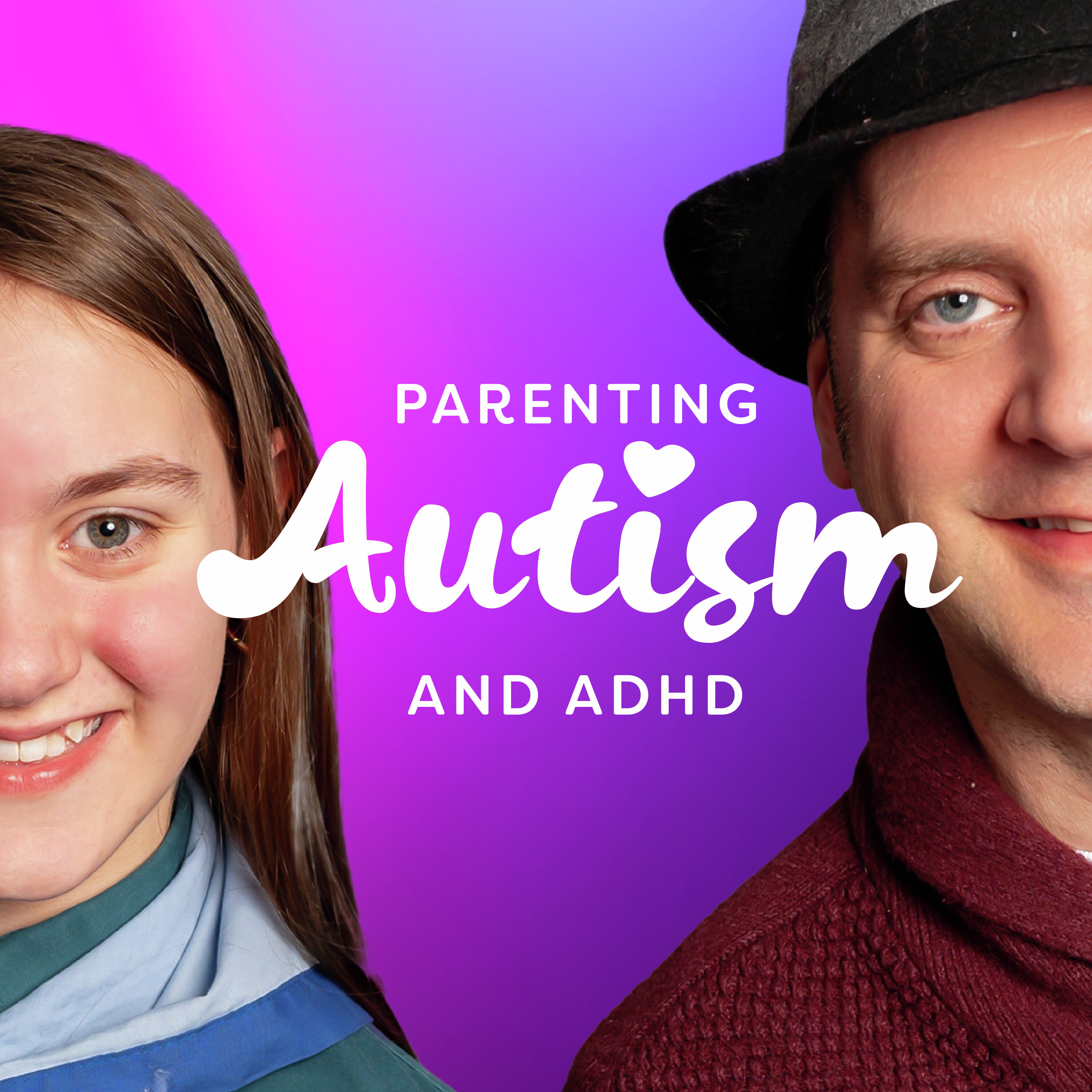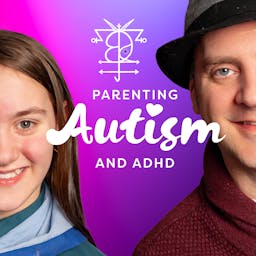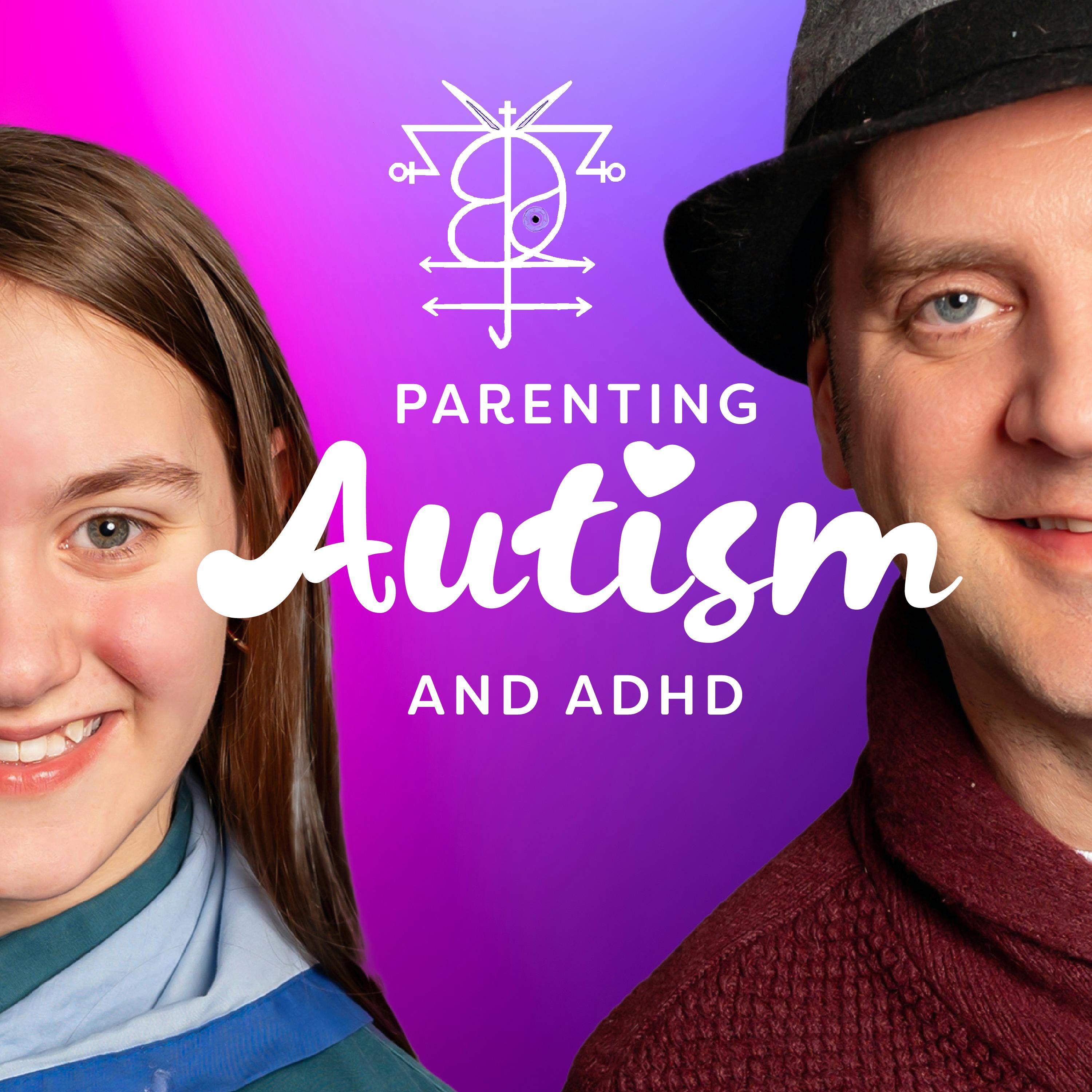Parenting Autism and ADHD

Parenting Autism and ADHD
Podcast Description
Parenting Autism and ADHD is a podcast designed to support parents and carers of children with autism, ADHD, Sensory Processing Disorder (SPD), and other neurodevelopmental challenges, as well as children struggling with school attendance, even if they haven’t yet been diagnosed.
Each episode offers practical guidance on helping your child attend school with less stress, manage meltdowns, and navigate obstacles in the education system.
Through expert advice, real-life stories, and actionable strategies, we aim to empower you to overcome school refusal, sensory sensitivities, and behavioural struggles with confidence.
Our mission is to build a supportive community where parents and carers can connect, share experiences, and access the tools they need for their child’s success, while fostering collaboration between parents and teachers to create a strong, unified support system.
Podcast Insights
Content Themes
The podcast centers on themes such as school attendance, managing meltdowns, and overcoming sensory sensitivities. Episodes include practical strategies for reducing school refusal, navigating the education system, and addressing sensory processing issues, featuring stories from both parents and educators who have valuable insights.

Parenting Autism and ADHD is a podcast designed to support parents and carers of children with autism, ADHD, Sensory Processing Disorder (SPD), and other neurodevelopmental challenges, as well as children struggling with school attendance, even if they haven’t yet been diagnosed.
Each episode offers practical guidance on helping your child attend school with less stress, manage meltdowns, and navigate obstacles in the education system.
Through expert advice, real-life stories, and actionable strategies, we aim to empower you to overcome school refusal, sensory sensitivities, and behavioural struggles with confidence.
Our mission is to build a supportive community where parents and carers can connect, share experiences, and access the tools they need for their child’s success, while fostering collaboration between parents and teachers to create a strong, unified support system.
In this special episode, Cliff shares highlights from a powerful conversation his daughter Eva and I had on Helping Teachers Thrive, a brilliant podcast hosted by teacher Tem. They discuss how Eva’s notebook helps her regulate and stay engaged, explore sensory overwhelm, mind breaks, fidget toys, and the small classroom changes that can completely transform a child’s experience.
Whether you’re a teacher or a parent, you’ll hear honest insights and practical ideas for supporting neurodivergent children so they can truly thrive in school and at home.
EPISODE REVEALS
Eva’s notebook isn’t a distraction, it’s a regulation tool that helps her manage emotions and stay present, even though it doesn’t look like “traditional” listening.
When schools respond to behaviour with curiosity instead of punishment, children feel safer, more motivated, and more able to learn.
A reward-focused, strengths-based system gives children a reason to engage, instead of making them afraid of getting things “wrong.”
When a child feels truly understood at school, their confidence grows and spills over into other areas of life including clubs, hobbies, and friendships.
What can look like doing nothing at parties or in groups is often a child carefully protecting themselves from sensory and social overwhelm.
Short, supported breaks and quiet spaces are essential tools that help neurodivergent children stay regulated enough to learn.
Fidget toys, doodling, and notebooks aren’t just “extras;” they’re simple regulation tools that keep hands busy so brains can stay focused.
Shutdowns as signs of overwhelm, not bad behaviour.
BEST MOMENTS
“In my old school, the teachers didn’t really recognise us that they just saw as she’s not listening so but in my new school, they see as she is listening, just in her own way.”
“Allow the student time to process.”
“The problem with the cards, from a teacher’s perspective, is I don’t want to single that child out.”
“Let them fidget with (the toy) underneath the table, so it doesn’t distract other kids. It just helps them, like, do something with the hands.”
“I see kids drawing on their hands all the time. I didn’t actually think that is helping them regulate.”
EPISODE RESOURCES
You can listen to the full episode here – https://podcasts.apple.com/gb/podcast/supporting-neurodiverse-children-autism-adhd-insights/id1681843058?i=1000738444038
RESOURCES
Cliff´s book “What To Do When Your Child Shuts Down” – https://amzn.eu/d/3trk6pw
CONTACT ME
Instagram: @cliff_kilmister08
Facebook: https://www.facebook.com/cliff.kilmister
X – @KilmisterCliff
YouTube – https://www.youtube.com/@ParentingAutismandADHD
HOST BIO
Cliff Kilmister is a dedicated parent, advocate, and cat whisperer with firsthand experience raising a child with autism, ADHD, and Sensory Processing Disorder (SPD). Having navigated the challenges of school refusal, meltdowns, and sensory sensitivities, Cliff brings an empathetic, real-world perspective to the podcast. When he’s not helping his child thrive, he’s dodging the evil stares of his three cats, who are plotting to take over the world (fortunately, they still haven’t figured out how to use the tin opener). Cliff offers practical advice, expert insights, and personal stories to help families facing similar struggles. Cliff is focused on connecting with professionals and networks to raise awareness about the growing need for the education system to adapt to the increasing neurodiverse population. Join the community on Patreon to share experiences, access exclusive content, and work together for change!

Disclaimer
This podcast’s information is provided for general reference and was obtained from publicly accessible sources. The Podcast Collaborative neither produces nor verifies the content, accuracy, or suitability of this podcast. Views and opinions belong solely to the podcast creators and guests.
For a complete disclaimer, please see our Full Disclaimer on the archive page. The Podcast Collaborative bears no responsibility for the podcast’s themes, language, or overall content. Listener discretion is advised. Read our Terms of Use and Privacy Policy for more details.